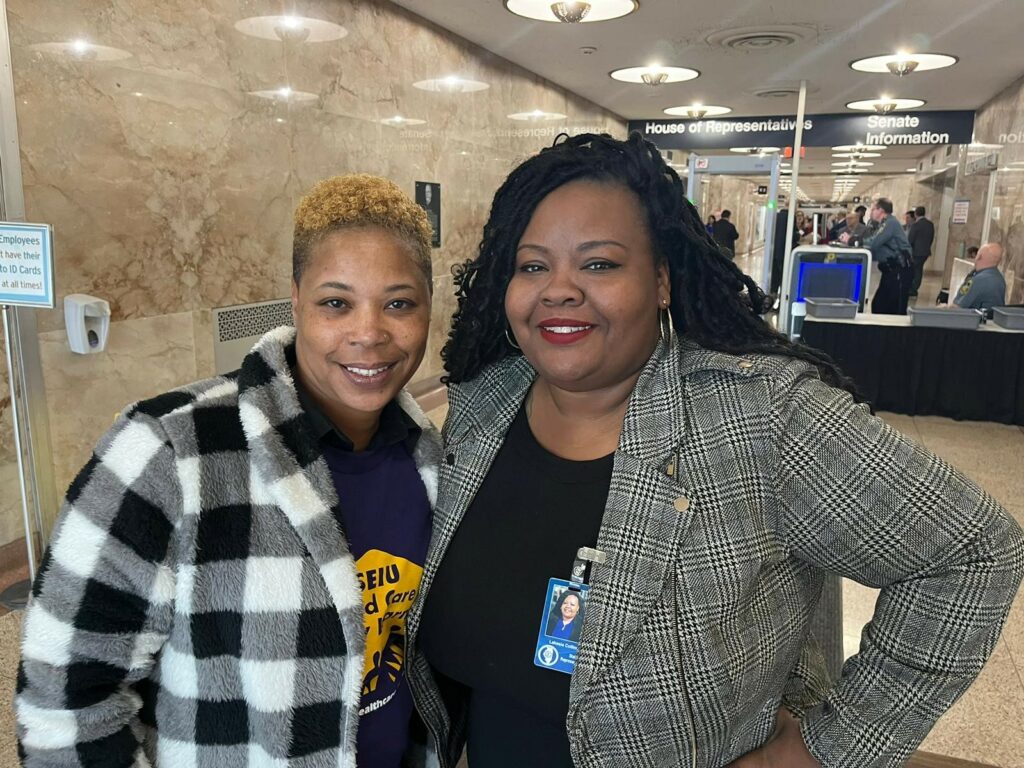Victory: Early Childhood Stabilization Act passes out of committee!


Today, we successfully passed the Early Childhood Stabilization Act (HB2310) out of the Illinois State House Child Care Accessibility and Early Childhood Education Committee. Our proposed bill addresses the growing workforce shortage that threatens child care access for working families and would invest in the pay, training, and accountability that publicly-funded centers in our state need.
Governor JB Pritzker’s proposed Smart Start initiative represents a key step toward addressing the needs of parents and providers, and would provide much-needed investment in the child care workforce that powers our state. Building on the governor’s plans, House Bill 2310 will address the growing workforce shortage that threatens child care access for working families by improving quality of care in early care and education through responsible contracting, investment in training, and a focus on equity and racial justice. The proposed legislation would not only invest in workers, but also establish processes for building up & retaining the workforce long-term, creating a workforce standards board made up of key stakeholders and funding training programs that value experience, inclusion, and racial equity.
At this morning’s committee hearing, SEIU Healthcare IL member Kaya Jackson shared her story of working in early education for the last 15 years and why this bill is so important. Read her full testimony below!
My name is Kaya Jackson and I have been working in early childhood the last 15 years. Child care center workers are vital to the early education field – without us, thousands of parents and working families would be without care and countless children would not get the support they need. Right now, Illinois is facing a huge child care crisis. Parents can’t find or afford care, and providers are leaving the field because the pay is so low.
When I started as a paraprofessional working with students with special needs, I was making only $10/hour. That role is a lot of responsibility: making sure that we can modify plans for each kids depending on their needs, and lots of my kids are nonverbal, many are autistic. Most of them have never gone to school before. I went to school for special education, so I stuck with that role despite the low pay. But I had so many other people say to me they just couldn’t do that for $10/hour. At the time I was also raising my four kids by myself, and it was hard to make it all work. I stuck it out and kept pushing – I am still here because of my passion, because I care about the kids in the community, not because of the pay.
These days as an assistant teacher at the YMCA of Metropolitan Chicago, I am making $21.04, and I only received that raise under our latest contract. It’s more than I was making before but it’s still tough. I hear all the time other teachers saying to me “I can’t do this, it’s just not enough” and some people are working 2 or 3 jobs in addition to being a teacher.
Right now there’s not enough early educators in the field to meet the need, and it’s causing people to leave. I’m currently filling in for a master teacher at my center who left because of the pay and not enough support.
This isn’t just happening at my center in Chicago – we recently did a survey of center workers and 81% said they had thought about leaving the child care field — 77% of those workers said that low pay was the main reason for wanting to leave. With inflation driving the cost of living higher and higher, there is simply no way for child care providers to be able to survive on less than $25/hour.
This bill, HB 2310 is the first step in addressing the child care crisis. It will make sure that early educators like me are paid enough to have savings for an emergency or a rainy day. The majority of my money and my coworkers’ money goes directly to bills. Or when I make a little extra money I often am using that to buy supplies for my classroom, because of how many needs my kids have. If my car broke down today I would have to take that out of my savings, and then where is the money for my bills gonna come from?
The bill would also give my coworkers and I a voice on the job, so that if schedules change or policies shift we can work with our employers to figure things out. And by investing in training and accountability for publicly funded centers, we can build the child care workforce we need. We can make sure that young people see early education jobs as good jobs they can stay in, not sacrifice for. Thank you.
